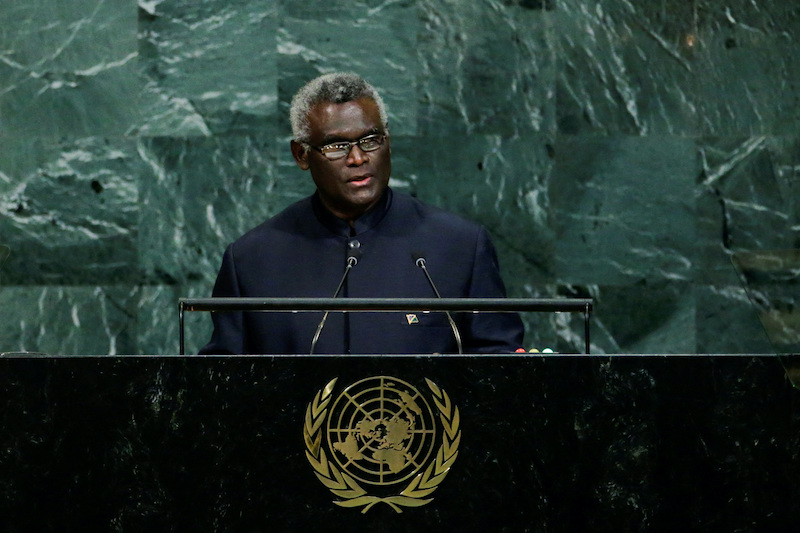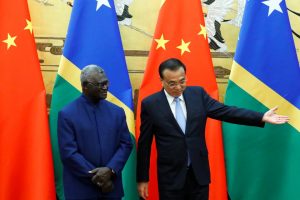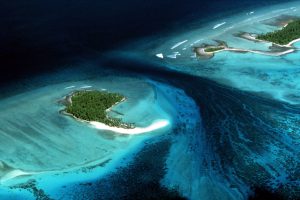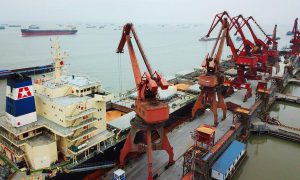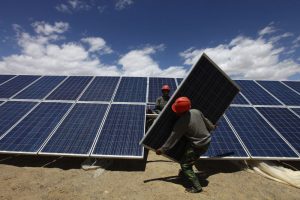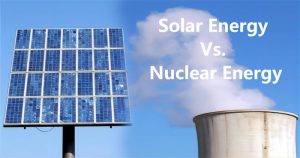White House fears over the Solomon Islands’ increasingly close relationship with China have intensified after the Pacific nation told neighbours it won’t be putting its name to a US-Pacific partnership agreement.
The islands, which struck a security pact with China in April, wrote to the Pacific Islands Forum and asked it to tell other members it wouldn’t be signing the proposed Declaration on the US-Pacific Partnership, set to be discussed at a White House summit on Thursday.
Leaders from the Pacific Island Forum bloc have been invited to the two-day White House summit, which started on Wednesday, with the Biden administration keen to head off China’s bid for influence in the strategically important South Pacific.
Also on AF: China Tells Brokers to Stabilise Markets for Party Congress
Federated States of Micronesia President David Panuelo said on Tuesday in Washington that countries had been working on the summit declaration – “a vision statement” – that would cover five thematic areas, including human-centered development, tackling climate change, geopolitics and security of the Pacific region, commerce, and industry and trade ties.
But the Solomons note said the declaration was “yet to enjoy consensus”.
“Solomons does state it won’t be able to sign the declaration but it doesn’t call on others to follow suit,” said Anna Powles, a Pacific security expert at New Zealand’s Massey University who has seen the note.
Solomon Islands Prime Minister Manasseh Sogavare’s office did not respond to a request for comment. A spokesperson for the White House National Security Council declined to comment.
Solomon Islands opposition party leader Matthew Wales wrote in a tweet: “Strange inconsistency. Agreements with China are signed in secret and kept secret. Now insisting Parliament must deal with the regional agreement with the US? Insincerity writ large!”
The Solomon Islands says in the note, signed by its embassy in Washington, that the Pacific Islands Forum already has a mechanism for engaging with partners outside the region.
Islands’ Challenge to Superpowers
“Of course, China is a part of that mechanism, hence the US seeking to create alternative architecture such as its own regional partnership framework,” Powles said.
Speaking at an event in Washington hosted by Georgetown University, Panuelo said the Pacific island nations had come to realise the importance of “strength in numbers” and called for superpowers to talk to them about the issues most important for the region.
Efforts to reach a final text on the declaration ran into problems this week during a call between the US State Department and Pacific islands ambassadors, when the US side demanded removal of language agreed to by the island countries that Washington address the Marshall Islands’ nuclear issue, three sources familiar with the call, including a diplomat from a Pacific island state, told Reuters.
- Reuters with additional editing by Sean O’Meara
Read more:
Australia Says China Pact Puts Solomons’ Sovereignty at Risk
US Set For New Trade Talks with 13 Indo-Pacific Nations
US to Host Blue Pacific Meeting on Aid for Island Nations




